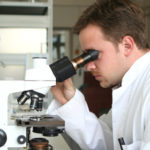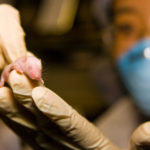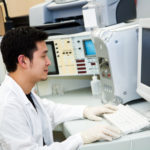
University of Bath discovery may help combat chronic inflammation
Researchers from the University of Bath’s Department of Pharmacy & Pharmacology have made an important discovery that might lead to novel therapies to combat chronic inflammation (University of Bath, 2017). The work, jointly funded by the Biotechnology and Biological Sciences Research Council (BBSRC) and Wellcome Trust, and published in the Journal of Immunology, focuses on … Continue reading University of Bath discovery may help combat chronic inflammation

University of Manchester receives major grant to help improve arthritis and cancer drug safety
The University of Manchester is part of a new consortium which will develop new CT and MRI scan techniques and biomarkers to look at the accumulation of compounds in the body caused by drugs and the harm they may cause. potentially improving patients’ safety and the development of new treatments (University of Manchester, 2017). The … Continue reading University of Manchester receives major grant to help improve arthritis and cancer drug safety

New way of attacking breast cancer
Scientists have discovered a brand new way of attacking breast cancer that could lead to a new generation of drugs (University of Manchester, 2017). Researchers have revealed a new driver for the growth and spread of breast cancer cells and have designed a novel type of drug to block it. The next step will be … Continue reading New way of attacking breast cancer

University of Liverpool receive funding for life saving device for women in childbirth
The University of Liverpool has been awarded £850,000 from the National Institute for Health Research (NIHR) to further develop an award winning device that could save the lives of women all over the world (University of Liverpool, 2017). Professor of International Maternal Health, Andrew Weeks, from the Institute of Translational Medicine received the funds from … Continue reading University of Liverpool receive funding for life saving device for women in childbirth

The immune system can spot a change in the identity of cancer antigens
A new study has identified novel mechanisms whereby T cells may be able to distinguish an emerging class of targets specifically increased on cancer cells (University of Birmingham, 2017). The study, carried out by researchers from the University of Birmingham and the University of Virginia, published in Oncotarget, focuses on how the immune system recognises … Continue reading The immune system can spot a change in the identity of cancer antigens

Parenting intervention using video feedback may reduce the severity of autism
The earliest autism intervention study in the world has suggested that a parenting intervention using video feedback for families with babies at family risk of autism may reduce the severity of emerging signs of autism (University of Manchester, 2017). This study is the first of its kind to work with babies in their first year … Continue reading Parenting intervention using video feedback may reduce the severity of autism

Swansea University’s smart bandages to be trialled “within 12 months”
Swansea University scientists have said bandages which can detect how a wound is healing and send messages back to doctors could be trialled within the next twelve months (BBC News, 2017). The bandages would use real time 5G technology to monitor what treatment is needed and also keep track of a patient’s activity levels. The … Continue reading Swansea University’s smart bandages to be trialled “within 12 months”

How to prevent tooth decay in children
A Cardiff University-led study has found applying fluoride varnish to children’s teeth is just as effective at preventing tooth decay as the alternative method of sealing teeth, and could save the NHS money (Cardiff University, 2017). The “Seal or Varnish?” study, in collaboration with Cardiff and Vale University Health Board Community Dental Service, treated just … Continue reading How to prevent tooth decay in children

New hope for people with arachnophobia
New research by a University of Manchester psychologist could give new hope to people who are scared of spiders (University of Manchester, 2017). Dr Warren Mansell said rather than encouraging people with arachnophobia to face their fears, which is the current approach of many therapists, giving them control over how much they approach or avoid … Continue reading New hope for people with arachnophobia

Study finds volunteering reduces the risk of dementia
A Swansea University academic is part of a team that has discovered that individuals who decide to retire from the workforce, but start to volunteer instead, report substantially less cognitive complaints and are far less likely to be diagnosed with dementia compared to retired workers who do not volunteer (Swansea University, 2017). Dr Martin Hyde … Continue reading Study finds volunteering reduces the risk of dementia








